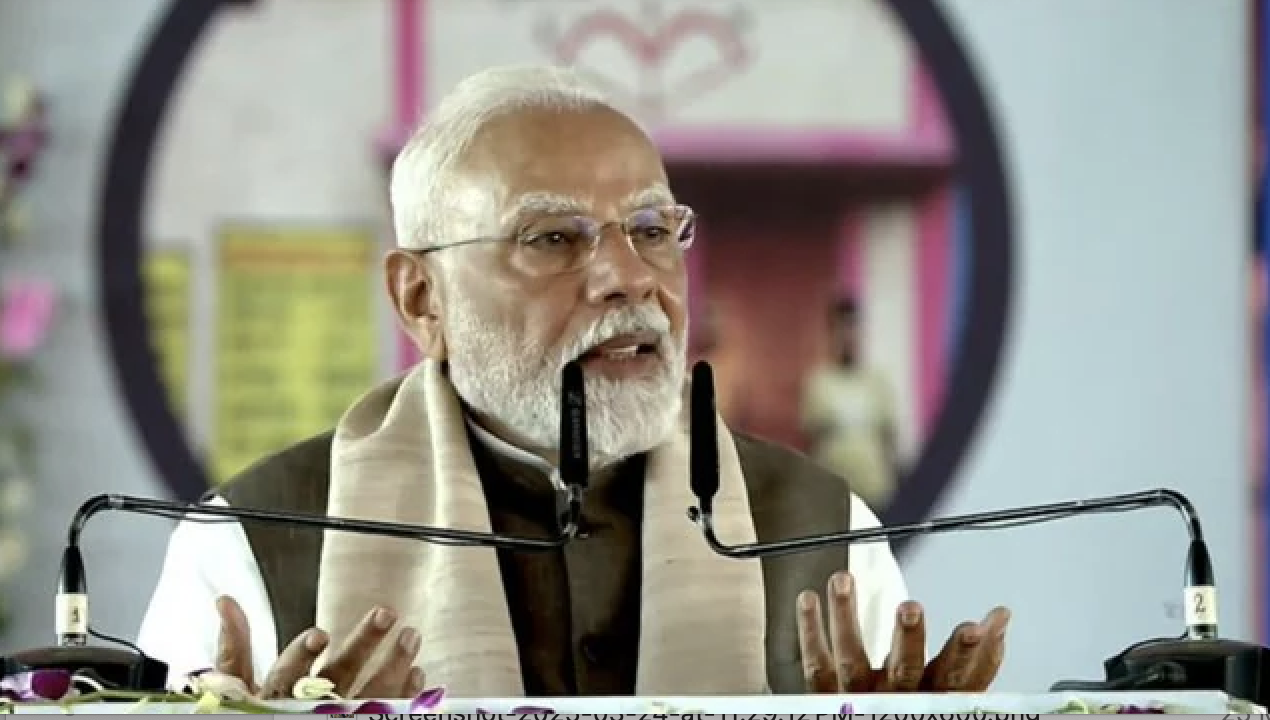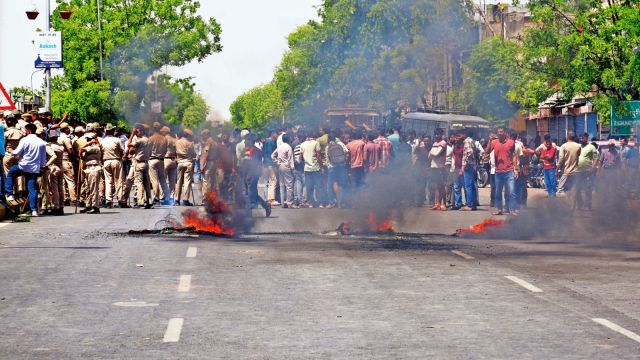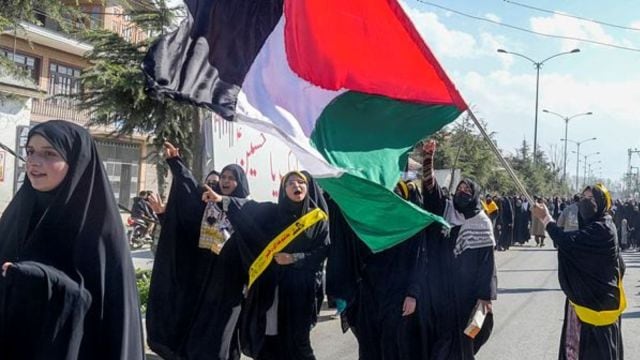In April, Indian student Karan Kataria alleged that the London School of Economics and Political Science in the United Kingdom had disbarred him from students’ union election because of his identity – putting a spotlight on how Hindutva identity politics is increasingly playing out overseas and influencing the Indian diaspora.
Hindutva organisations, influential diaspora members and social media have played a role in pushing Hindutva beyond India’s borders, which also raises concerns of potential social disharmony in their host countries, experts say.
Kataria alleged that his disqualification was the result of a smear campaign launched against him because he is of “Indian and Hindu identity”. “I am a staunch follower of the Rashtriya Swayamsevak Sangh, but so is Prime Minister Narendra Modi,” Kataria told The Indian Express. “Why target me for being a Hindu nationalist?”
He alleged that the refusal of the London School of Economics Students’ Union to act on Indian students’ complaints of being “bullied and targeted” over their nationality and “Hindu identities” on polling day was evidence of its “Hinduphobia”.
In response, the students’ union said it was investigating the allegations, but suggested that Kataria was disqualified for breaching election rules that require candidates to maintain a two-metre distance from voters. The union added that it would constitute an external review.
Uncharacteristically, the Indian High Commission in London said it had “noted Karan’s concerns”. Even more unusually, Manohar Lal Khattar, the chief minister of Haryana, from where Kataria hails, also wrote to the London School of Economics, asking it to “protect [Kataria] from discrimination on account of his beliefs or race”.
This was not the first Hindutva controversy at a foreign university. In March 2021, Rashmi Samant, a student from India, had alleged that she had been forced to resign as the president-elect of the Oxford University Students’ Union because of her Hindu faith. The Bharatiya Janata Party’s youth wing promptly backed Samant. India’s External Affairs Minister S Jaishankar had said he would raise the matter with the UK.
However, the Campaign for Racial Awareness and Equality, an Oxford students’ union initiative, had suggested that Samant had been asked to resign because of her purported antisemitic and racist social media posts, not because of her identity. The university’s Hindu Society had also rejected Samant’s allegations of identity-based discrimination.
Replicating Indian politics abroad
Beyond academia, Hindutva identity politics has also played out in the Indian diaspora in recent years.
In August and September, tensions erupted between Hindus and Muslims in Leicester, United Kingdom after an India-Pakistan cricket match. At one point, a Hindu group reportedly walked through the city’s streets chanting “Jai Shri Ram”, a religious phrase that has been adopted by Hindutva groups as a political slogan. Muslim groups reportedly responded with protests and, in one instance, allegedly tore down a saffron flag from outside a Hindu religious centre.
The Leicester communal unrest points to a deeper political divide in the UK. In recent years, British-Indian Hindus and Muslims have reportedly split on party lines. British-Indian Hindus have reportedly moved right towards the Conservative Party and the Muslims have largely remained with the progressive Labour party. The Overseas Friends of BJP, a powerful diaspora group, has also extended its support to the Conservatives…
This story was originally published in scroll.in. Read the full story here






